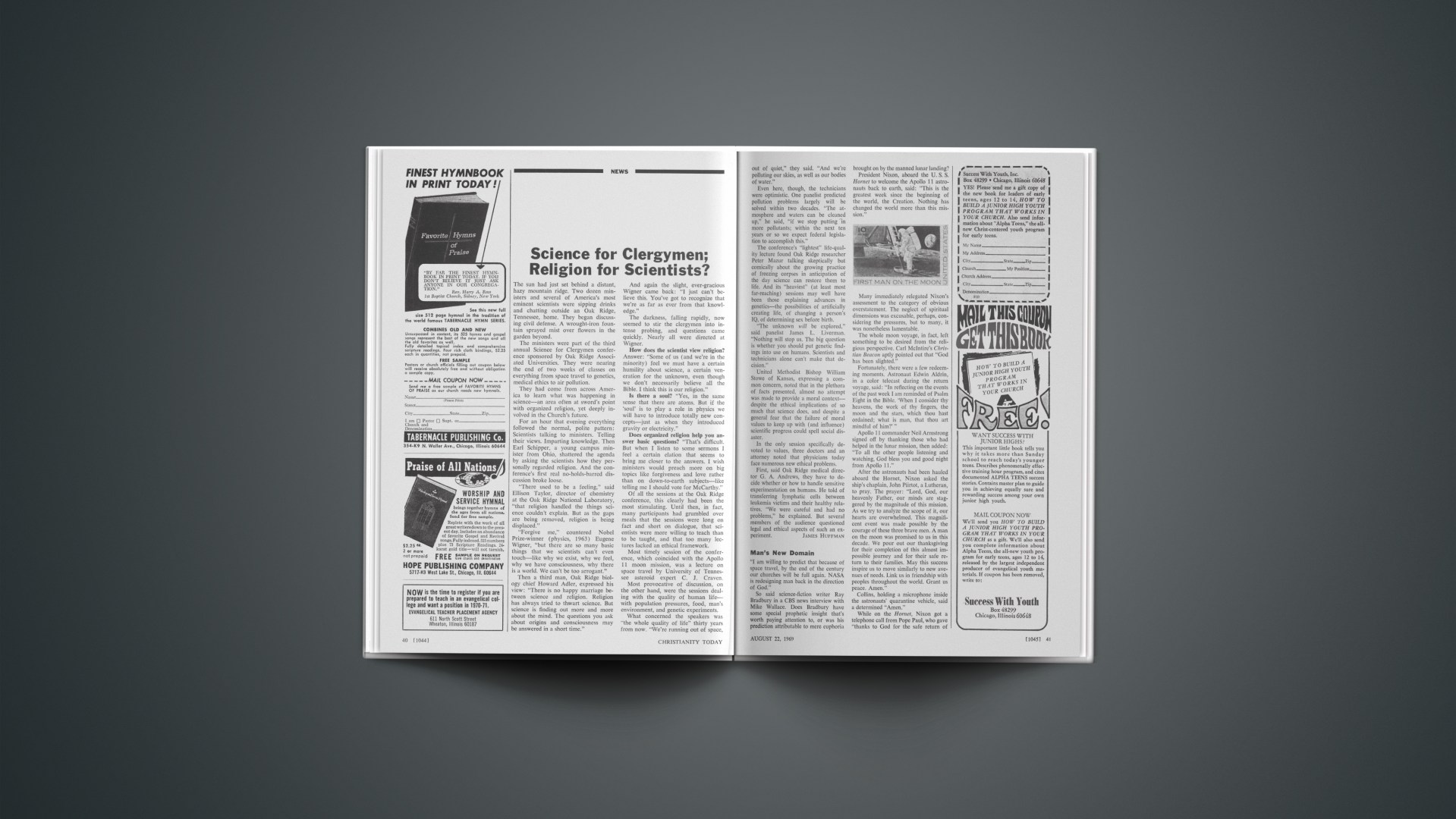“I am willing to predict that because of space travel, by the end of the century our churches will be full again. NASA is redesigning man back in the direction of God.”
So said science-fiction writer Ray Bradbury in a CBS news interview with Mike Wallace. Does Bradbury have some special prophetic insight that’s worth paying attention to, or was his prediction attributable to mere euphoria brought on by the manned lunar landing?
President Nixon, aboard the U. S. S. Hornet to welcome the Apollo 11 astronauts back to earth, said: “This is the greatest week since the beginning of the world, the Creation. Nothing has changed the world more than this mission.”
Many immediately relegated Nixon’s assessment to the category of obvious overstatement. The neglect of spiritual dimensions was excusable, perhaps, considering the pressures, but to many, it was nonetheless lamentable.
The whole moon voyage, in fact, left something to be desired from the religious perspective. Carl McIntire’s Christian Beacon aptly pointed out that “God has been slighted.”
Fortunately, there were a few redeeming moments. Astronaut Edwin Aldrin, in a color telecast during the return voyage, said: “In reflecting on the events of the past week I am reminded of Psalm Eight in the Bible. ‘When I consider thy heavens, the work of thy fingers, the moon and the stars, which thou hast ordained; what is man, that thou art mindful of him?’ ”
Apollo 11 commander Neil Armstrong signed off by thanking those who had helped in the lunar mission, then added; “To all the other people listening and watching, God bless you and good night from Apollo 11.”
After the astronauts had been hauled aboard the Hornet, Nixon asked the ship’s chaplain, John Purtot, a Lutheran, to pray. The prayer: “Lord, God, our heavenly Father, our minds are staggered by the magnitude of this mission. As we try to analyze the scope of it, our hearts are overwhelmed. This magnificent event was made possible by the courage of these three brave men. A man on the moon was promised to us in this decade. We pour out our thanksgiving for their completion of this almost impossible journey and for their safe return to their families. May this success inspire us to move similarly to new avenues of needs. Link us in friendship with peoples throughout the world. Grant us peace. Amen.”
Collins, holding a microphone inside the astronauts’ quarantine vehicle, said a determined “Amen.”
While on the Hornet, Nixon got a telephone call from Pope Paul, who gave “thanks to God for the safe return of the explorers of the moon.” The pontiff said the Roman Catholic Church congratulated the “courageous pioneers, their families and all who collaborated in their success.”
Then after the astronauts were quarantined in Houston, a fifteen-minute Sunday service was held inside the Lunar Receiving Laboratory. Jesse Stewart, a cook and a deacon at the New Hope Baptist Church, read from the Twenty-third Psalm and delivered a short sermon.
From a biblical perspective, perhaps the most gratifying element was implicit. The plaque left behind on the moon notes that man first set foot there in July, 1969, A.D. Baptist pastor James Bulman of Oak Ridge, North Carolina in a July 27 sermon cited inclusion of the abbreviation of Anno Domini (in the year of our Lord) as partial fulfillment of the Philippians 2 passage that says Jesus will be acknowledged as Lord not only on earth but also “in heaven.”










